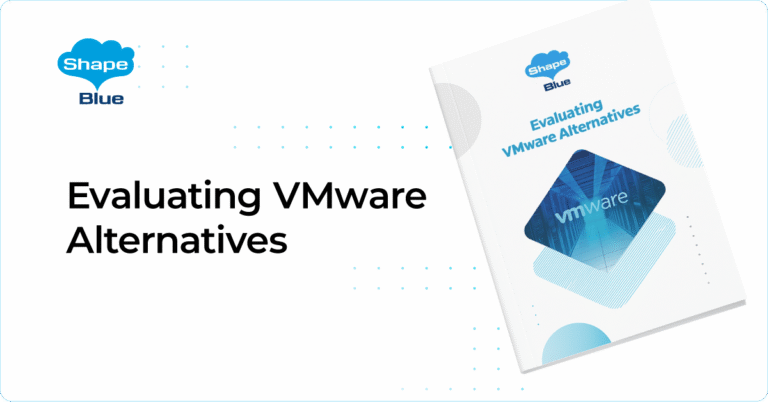CloudStack European User Group 2025: A Thriving Community Comes Together in Vienna
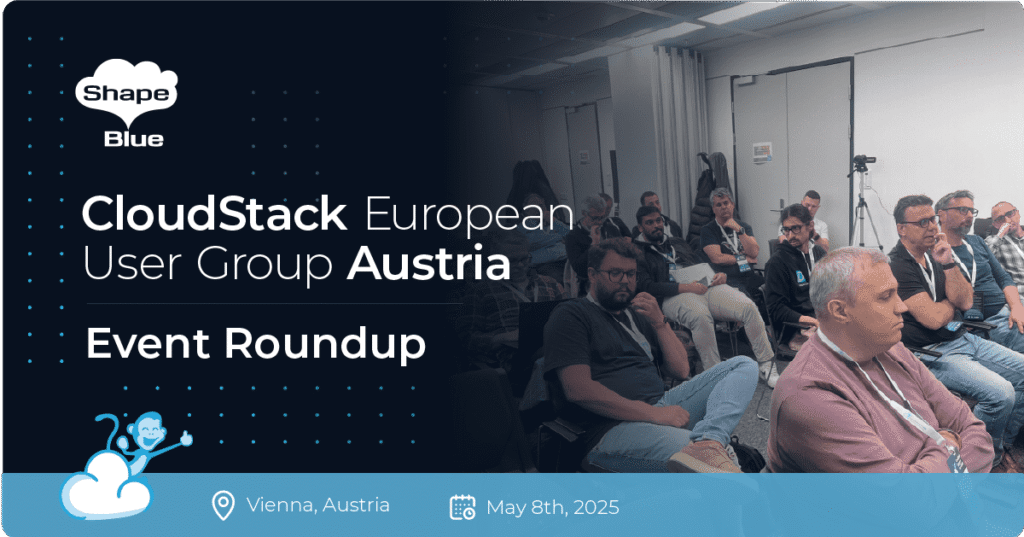
On May 8th, the CloudStack European User Group (CSEUG) once again brought together open-source cloud professionals, contributors, developers, and users for a day of deep technical insights, knowledge sharing, and community connection—this time in the stunning city of Vienna, Austria. Hosted at Quartier Belvedere Central, the 2025 edition of CSEUG marked another successful chapter in […]
ShapeBlue Con 2025 Roundup
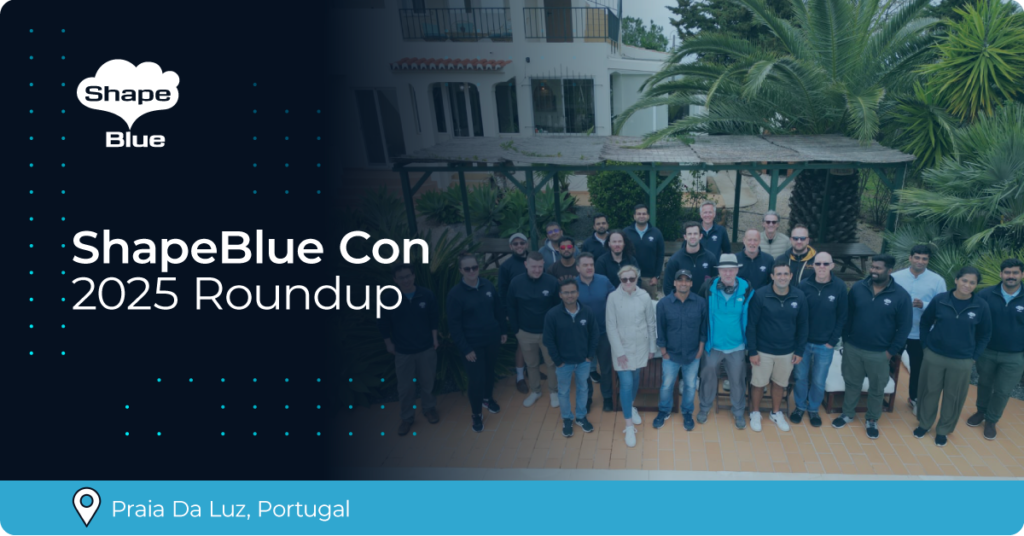
At the end of March, the ShapeBlue team came together in the picturesque coastal town of Praia da Luz, Portugal, for ShapeBlue Con 2025. This annual gathering is a cornerstone of our culture, offering a dedicated space for collaboration, innovation, and strengthening the relationships that underpin our employee-owned company. As a multi-cultural company with team […]
ShapeBlue Supports the CloudStack European User Group 2025
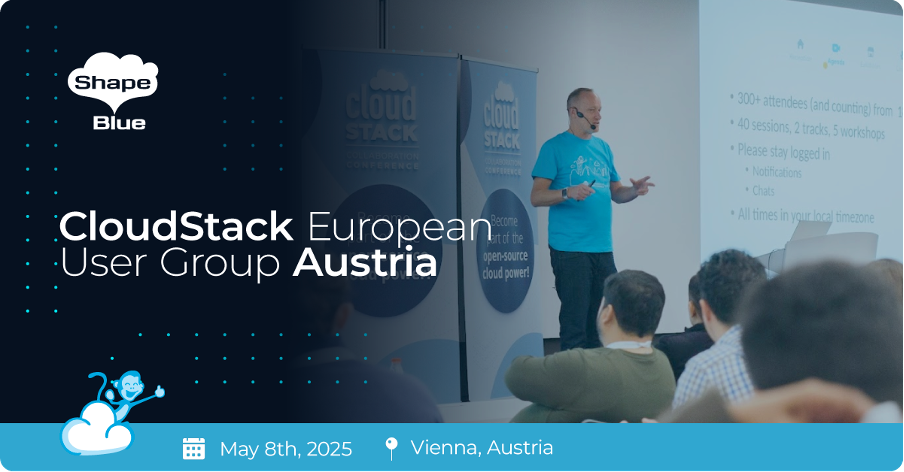
The CloudStack European User Group (CSEUG) 2025 will be taking place in Vienna, Austria on May 8th, at the Quartier Belvedere Central 3. This spring’s CSEUG local host will be LINBIT, the company behind the open-source storage software DRBD and LINBIT. ShapeBlue is proud to be sponsoring the User Group once again, alongside LINBIT and […]
ShapeBlue Joins CloudFest 2025 to Support the Apache CloudStack Project
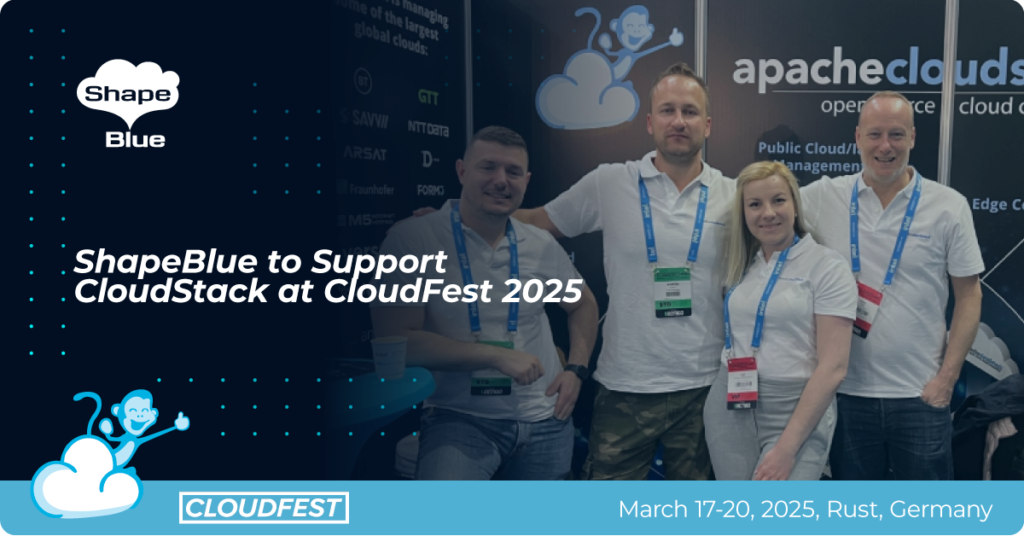
From March 17-20, the world’s leading internet infrastructure event – CloudFest – will return to Europa-Park in Rust, Germany. ShapeBlue will be supporting the Apache CloudStack project, with a number of team members helping at the booth alongside other community members. For the third consecutive year, Apache CloudStack will have a presence at CloudFest, showcasing […]
Inside CloudStack Collaboration Conference 2024: ShapeBlue’s Recap and Highlights
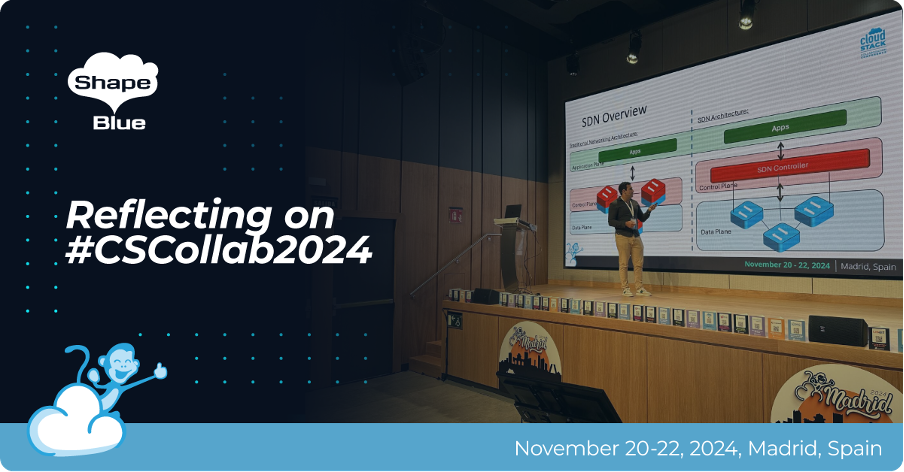
The CloudStack Collaboration Conference (CCC) 2024 has come and gone, and what an incredible event it was! It was great seeing the community come together from all corners of the globe to collaborate on all things #CloudStack. As a Diamond Sponsor, the ShapeBlue team is proud to participate in this conference each year, whether through […]
ShapeBlue Takes the Stage: Expert Sessions at CloudStack Collaboration Conference 2024
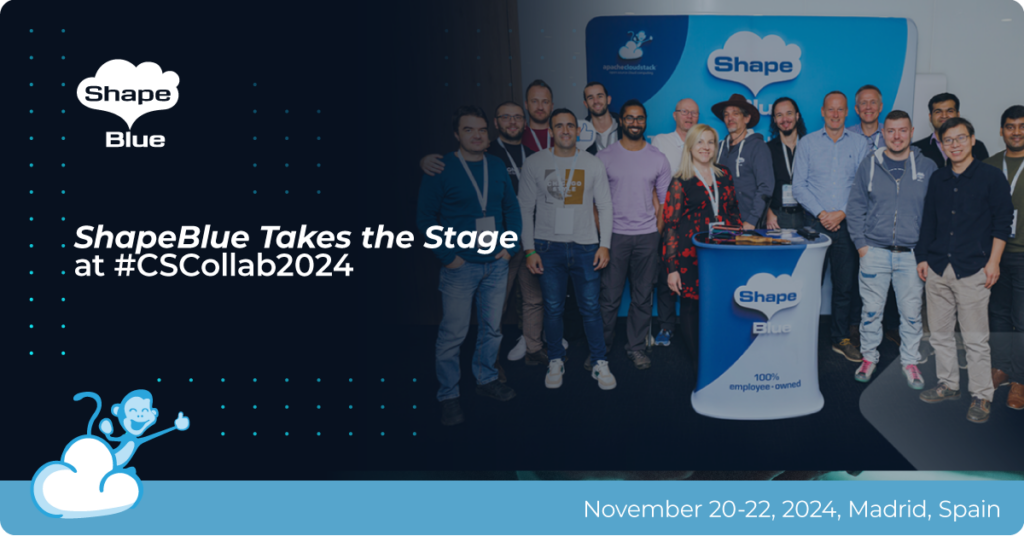
The ShapeBlue team is excited to be participating once again at the CloudStack Collaboration Conference! Taking place in the vibrant city of Madrid, Spain, from November 20-22, the event is set to be another #CSCollab to remember. The first day will kick off with a hackathon, followed by two days filled with sessions and workshops, […]
Event Roundup: CloudStack European User Group 2024
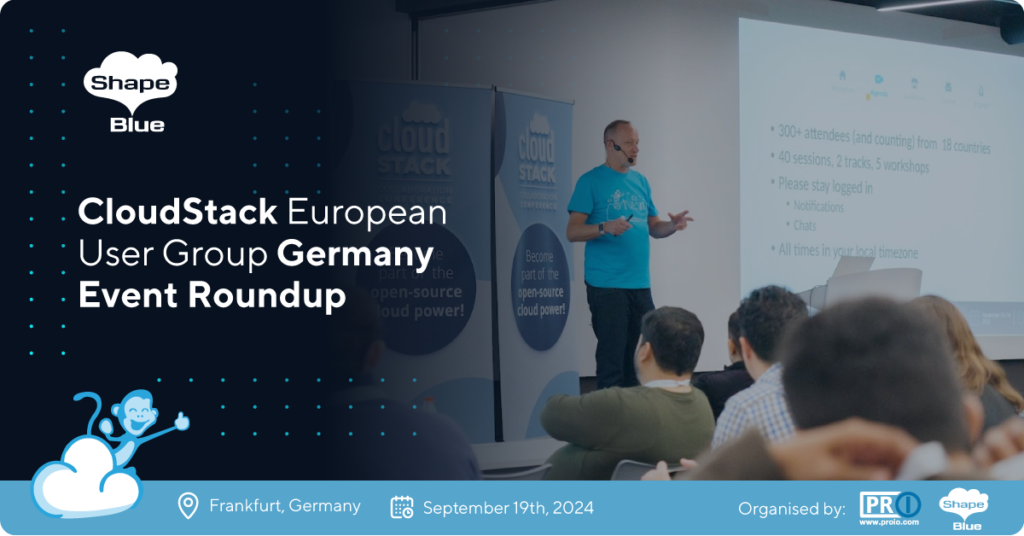
We were pleased to see that this year’s CloudStack European User Group was another productive and useful event for the CloudStack community. It was great to have ShapeBlue CEO Giles Sirett and Technical Marketing Manager Marco Sinhoreli hosting their own sessions. We were also happy to sponsor the event alongside LINBIT and proIO, who served […]
ShapeBlue Team Members will be presenting at the CloudStack European User Group 2024

The ShapeBlue team is excited about the upcoming CloudStack European User Group 2024, scheduled for September 19th in Frankfurt. Hosted by proIO, a leading German Private Cloud and Managed Hosting Provider, this event will feature a day of insightful CloudStack-focus presentations. We are excited to see ShapeBlue CEO, Giles Sirett and Technical Marketing Manager, Marco […]
ShapeBlue Invites IaaS Builders, Cloud Providers and MSPs to Join Us at the Largest CloudStack Event in Madrid
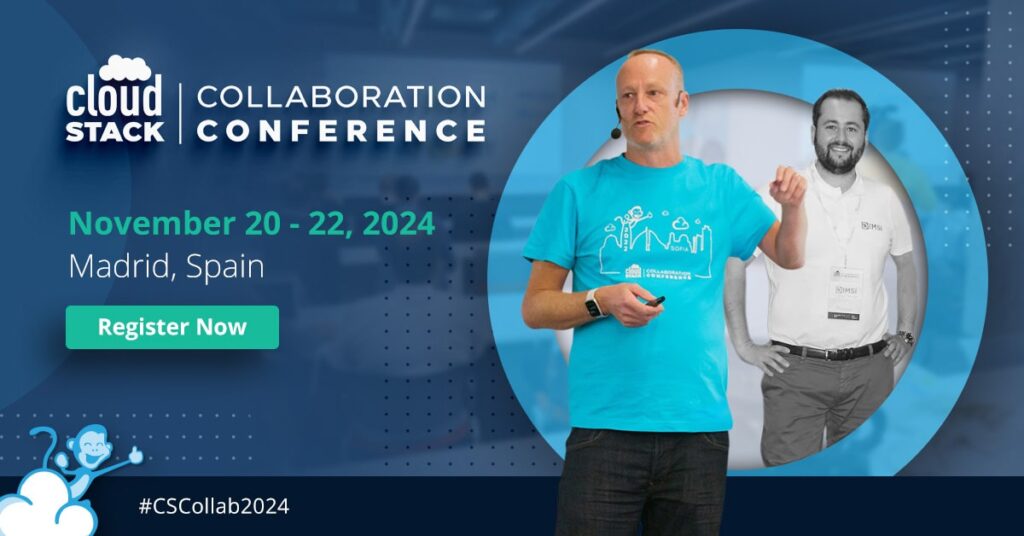
As always, ShapeBlue is proud to announce that for another year we support the CloudStack Collaboration Conference – the premier event for the global CloudStack community. This year’s conference will occur from November 20-22 in the vibrant city of Madrid, Spain, at the Orense34 conference center. It promises to be the largest and most engaging […]
CloudStack European User Group Goes to Frankfurt, Germany
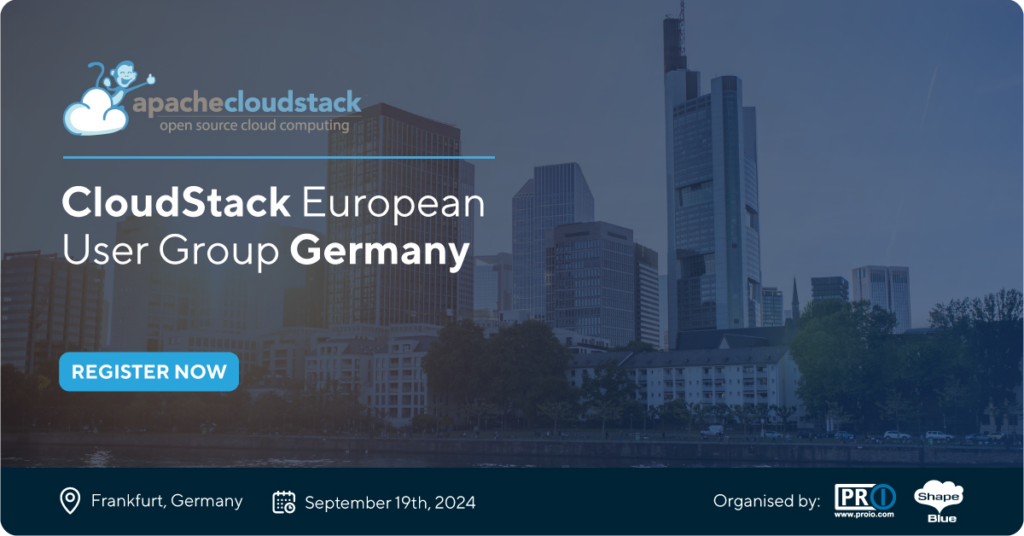
The CloudStack European User Group 2024 is set for September 19th in Frankfurt, Germany! This event will be hosted by proIO, a German Private Cloud and Managed Hosting Provider and long-time supporter of the CloudStack community. The venue for the CloudStack European User Group 2024 will be Nio House Frankfurt. Why Join the CSEUG […]

